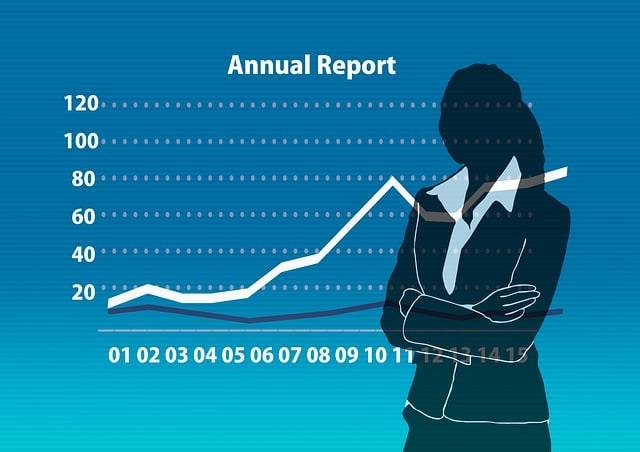Auditor Reports UK require precise translation services to ensure financial transparency and regulatory compliance across diverse markets. Specialized experts use advanced tech and industry knowledge to maintain report integrity, adapt to local nuanc…….
Category: Auditor Reports UK translation services
-
Introduction
Auditor reports in the UK play a pivotal role in maintaining transparency, accountability, and trust within the business community. The translation of these reports into various languages is essential for international operations, mergers and acquisitions, and cross-border legal proceedings. This article delves into the nuanced world of UK auditor report translations services, exploring their significance, global impact, economic considerations, technological advancements, policy frameworks, challenges, case studies, and future prospects. By the end of this article, readers will have a comprehensive understanding of how these services operate within the UK and globally, and why they are indispensable for businesses operating in multilingual environments. -
Understanding Auditor-Reports-UK Translation Services
Auditor-reports-UK translation services involve the precise conversion of financial statements and auditor’s reports from English to other languages, ensuring accuracy and compliance with international accounting standards. These services are crucial for companies seeking to communicate their financial status to stakeholders who do not speak English as a first language. The core components include linguistic expertise in both source and target languages, knowledge of accounting terminology, and understanding of the cultural nuances that can affect translation.
Historically, these services have evolved alongside global commerce, reflecting changes in trade laws, economic practices, and communication technologies. Their significance lies in their ability to facilitate international business transactions, due diligence processes, and regulatory compliance. They are an integral part of the broader financial reporting ecosystem that ensures global accessibility and understanding of UK-based financial information.
- Global Impact and Trends
The influence of UK auditor report translations extends far beyond its shores, impacting multinational corporations, international investors, and regulatory bodies worldwide. Key trends shaping this industry include the increasing demand for real-time translations due to the fast pace of global business, the adoption of artificial intelligence and machine learning in translation processes, and the growing importance of sustainability reporting.
Regions such as Asia-Pacific, Latin America, and Central and Eastern Europe have shown significant growth in the need for such services, driven by economic development and increased foreign investment. The trend is towards more specialized translators who can navigate the complexities of both financial language and regional dialects, ensuring clarity and precision in communication.
- Economic Considerations
From a macroeconomic standpoint, auditor-reports-UK translation services facilitate capital flows by making financial data accessible to a global audience. They enable investors to make informed decisions, thereby supporting the efficient functioning of capital markets. These services also play a role in international trade negotiations and compliance with international financial reporting standards (IFRS).
The economic impact is clear: accurate translations can prevent miscommunication that might lead to costly legal disputes or financial losses. They also support the UK’s export of professional services, contributing to the national economy. The interplay between these services and market dynamics highlights their importance in fostering international trade and investment.
-
Technological Advancements
Technological advancements have revolutionized the field of translation services. Innovations such as advanced machine translation systems, natural language processing, and optical character recognition have significantly improved efficiency and accuracy. These technologies are complemented by human expertise to ensure that translations meet professional standards. The future holds promise for even more sophisticated tools that can handle complex linguistic and accounting concepts with greater precision. -
Policy and Regulation
The governance of auditor-reports-UK translation services is shaped by a mix of international agreements, national regulations, and industry best practices. Key policies include those set forth by the International Federation of Accountants (IFAC) and the European Securities and Markets Authority (ESMA). These frameworks ensure that translations not only convey the original message accurately but also adhere to local legal and reporting requirements.
Regulations are designed to protect stakeholders from misrepresentation or fraudulent activities, which is why the translation process must be rigorously overseen by qualified professionals. Compliance with these regulations is a testament to the credibility and reliability of UK auditor reports in the global arena.
- Challenges and Criticisms
Despite their importance, auditor-reports-UK translation services face challenges such as maintaining consistency across translations, adapting to different legal environments, and ensuring the timely delivery of high-quality work. Criticisms often center around potential misinterpretations due to cultural or linguistic differences, which can have significant financial implications.
To address these issues, a combination of advanced technology and human expertise is necessary. Translation services must continuously invest in training and development for their staff, adopt the latest technological solutions, and maintain a keen understanding of international business practices.
-
Case Studies
Several case studies illustrate the successful application of UK auditor-reports-UK translation services. For instance, a multinational corporation’s acquisition of a UK-based company required precise translations of financial reports for due diligence purposes. The translations facilitated a smooth transaction and avoided potential pitfalls. Another case involved a UK company seeking to list on a foreign stock exchange, where accurate translations were critical for regulatory compliance and investor confidence. -
Future Prospects
The future of auditor-reports-UK translation services is poised for growth, driven by globalization, technological advancements, and an increasing emphasis on transparency in international business. The rise of multinational enterprises and the complexities of cross-border financial reporting will continue to demand high-quality translation services. As businesses become more globally interconnected, the role of these services in supporting international commerce and investment will only expand.
In conclusion, auditor-reports-UK translation services are a vital component of the global financial landscape. They enable clear communication across language barriers, support economic growth, and facilitate compliance with international standards. As the world becomes increasingly interconnected, the demand for these services is likely to increase, making them an essential tool for businesses operating in diverse linguistic markets.
Accurate UK Translations: Unlocking Global Expansion via Auditor Reports
Global expansion demands clear communication, especially for complex auditor reports. Auditor Reports UK translation services provide expert linguistic support, leveraging technology to ensure accurate translations that maintain report integrity and…….
Precision Translator: Tailoring Auditor Reports for Cross-Border Success
Cross-border companies need precise Auditor Reports UK translation services to navigate diverse markets. Traditional methods often fail due to accounting terminology and local regulations, leading to errors. Specialized services employ native experts…….
Precision Auditing: Tailored Translations for Cross-Border Business Success
In today's globalized business environment, accurate Auditor Reports UK translation services are vital for cross-border companies navigating diverse markets. These services go beyond basic translations, incorporating cultural nuances, technical…….
Professional Translations: Unlocking UK Audit Reports’ Success
In today's global business environment, accurate Auditor Reports UK translations are crucial for compliance, communication, transparency, and investor confidence. Professional translators with finance and auditing expertise are essential to hand…….
Professional Translation Services for Auditor Reports: Ensuring Global Business Compliance
In today's global business environment, Auditor Reports UK translation services are crucial for multinational corporations aiming for international success. Accurate translations ensure regulatory compliance, investor confidence, and avoid legal…….
Professional UK Audit Report Translations: Navigating Compliance with Expert Services
In today's globalized business environment, Auditor Reports UK translation services are vital for international companies navigating financial compliance. Specialized translators with accounting expertise ensure accurate and reliable translation…….
Professional Translations: Navigating UK Audit Reports with Compliance & Precision
Accurate translations of UK auditor reports are vital for global businesses, enabling stakeholders across countries to understand critical financial insights and regulatory compliance information. Professional translation services specializing in aud…….
Navigating UK Auditor Report Compliance: The Vital Role of Certified Translations
In today's global business environment, Auditor Reports UK translation services are crucial for companies aiming to comply with regulatory standards. These services rely on certified translators who offer nuanced, legally sound translations of f…….
Global Financial Audits: Navigating with Reliable UK Translation Services
In today's global economy, accurate financial translations, especially for auditor reports, are crucial for effective cross-border communication. Auditor Reports UK translation services are essential due to their experts' deep understanding…….









